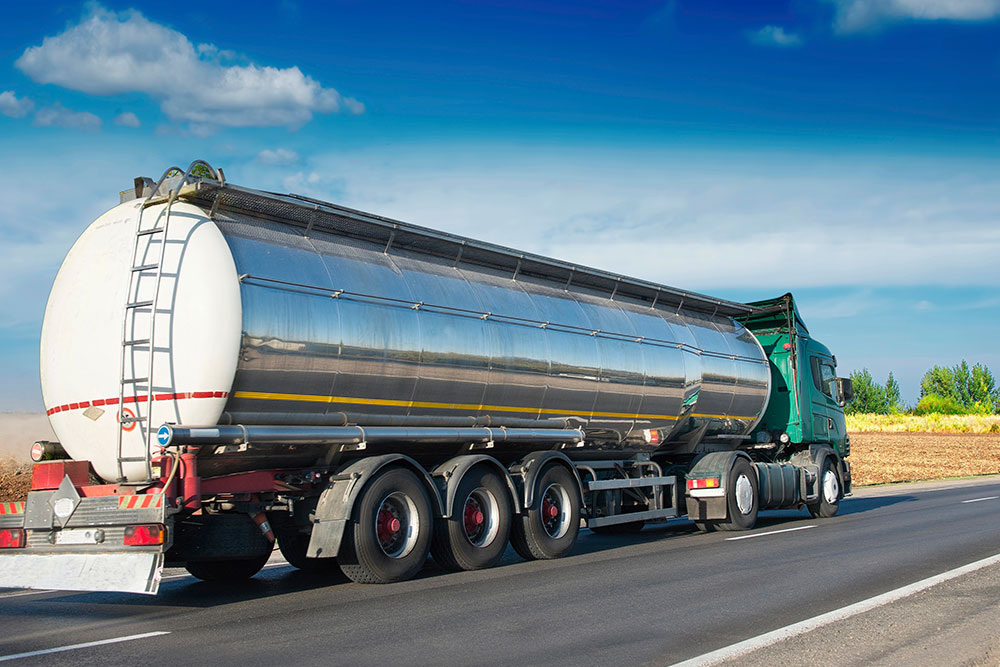If you’re in the market for a used pickup truck, you’ve likely come across one big question: diesel vs. gas truck — which is right for you? At first glance, the difference might seem like a matter of preference. But dig a little deeper and you’ll find that the choice affects performance, maintenance, fuel economy, long-term cost, and how well the vehicle fits your lifestyle.
Drivers often focus on price tags and appearances, but what powers your truck plays a major role in your overall experience. Understanding how these engines work and how they hold up over time can help you make a smarter purchase, especially when you’re buying pre-owned.
Let’s walk through the key differences, advantages, and trade-offs between diesel and gas trucks to help you decide which type of used vehicle better matches your needs.
Understanding the Core Differences
The most significant difference between diesel and gas trucks lies in how their engines function. Gasoline engines rely on spark plugs to ignite fuel, while diesel engines compress air to such a high temperature that the fuel ignites on its own. This mechanical contrast affects everything from towing capacity to fuel economy and engine lifespan.
Gas trucks generally deliver higher horsepower and quicker acceleration. They’re favored by drivers who prioritize responsiveness and plan to use their trucks for day-to-day errands, commuting, or lighter loads.
Diesel trucks shine in scenarios where torque is king. Their engines generate more pulling power, making them better for towing trailers, carrying heavy cargo, and long-distance hauls. The trade-off? They often come with a higher initial purchase price and may require more expensive repairs over time.
Fuel Efficiency and Operating Costs
One of the most talked-about comparisons is the fuel economy of diesel vs. gas trucks. Diesel engines typically offer better mileage, particularly on the highway. This efficiency comes from the energy density of diesel fuel and how these engines operate at lower RPMs.
Gas trucks, on the other hand, consume more fuel but come with lower prices at the pump. Over time, gas engines can become less efficient, especially when used for heavy towing or off-roading. If your truck usage involves routine driving in town with light loads, a gas model might serve you just fine.
Now let’s address the costs of owning a diesel truck vs. gas truck. Diesel trucks may save you money in fuel over time, but they tend to require costlier maintenance. Parts like glow plugs, fuel injectors, and turbochargers can add up. Oil changes and filters also tend to cost more for diesel engines. Gas trucks are typically less expensive to maintain and repair, though they may need more frequent service.
If you’re driving short distances or prefer fewer visits to the shop, a gas engine might be more convenient. For long-haul drivers, especially those who do lots of towing, diesel may justify its higher upkeep with better durability.
Power, Towing, and Payload
If you’re planning to use your truck for serious work like hauling equipment, trailers, or campers, diesel models offer advantages that are hard to beat. The high torque output at lower RPMs means diesel trucks can pull heavier loads with less strain. This is why many commercial and agricultural fleets rely heavily on diesel-powered vehicles.
Gas trucks still offer impressive towing power, especially in newer models with improved engine designs. But when comparing used options, diesel typically edges out in towing performance and long-term engine strength under heavy stress.
Keep in mind that payload capacity, meaning how much weight a truck can carry in its bed, also depends on suspension and frame design. In many cases, diesel trucks are built on platforms designed for heavier loads. If you’re going to be moving gear frequently, it’s worth comparing the specs of each used truck model.
Engine Longevity and Resale Value
One of diesel’s biggest selling points is its lifespan. Diesel engines are known for running several hundred thousand miles when well-maintained. They are built to withstand the pressure of constant hauling, making them popular in industries that rely on durable workhorses.
Gas engines often have a shorter life expectancy, especially under tough driving conditions. While modern gas engines have improved in both durability and technology, diesel still tends to win in long-term reliability.
This longevity also contributes to higher resale values. Used diesel trucks typically retain their worth better than gas-powered trucks. However, a well-maintained gas truck can also offer great value, especially if it’s under 100,000 miles and in good condition.
Cold Weather Performance
Cold climates introduce another layer to the decision. Diesel engines are sensitive to low temperatures and may have a harder time starting in freezing conditions. Many diesel models come with glow plugs or engine block heaters to counter this, but it’s still something to consider if you live in an area with harsh winters.
Gas engines are less temperamental in the cold and tend to start more reliably without added equipment. If your winters are long and your driveway isn’t plugged in to a block heater, a gas truck could make daily starts easier.
Environmental Impact and Emissions
Emissions standards have changed a lot in recent years. Older diesel trucks were known for their black smoke and high emissions, but modern diesel engines now use DEF, which is Diesel Exhaust Fluid, and filters to reduce pollutants.
Gasoline engines produce fewer nitrogen oxides but more carbon monoxide and hydrocarbons. In terms of emissions, both types of engines have trade-offs, and regulations have pushed manufacturers to improve fuel cleanliness across the board.
That said, maintaining your truck, diesel or gas, is key to keeping it eco-friendly. Poor maintenance leads to higher emissions, decreased mileage, and shorter engine life.
Upfront Cost and Market Availability
Used diesel trucks often come with a higher price tag than comparable gas models. This is due to their enhanced towing capacity, long-term value, and engine life. But that doesn’t mean gas trucks aren’t a good deal. Many offer strong performance at a lower upfront cost, especially for drivers who don’t need heavy-duty power.
Availability also plays a role. Depending on your area, you may find more gas trucks on the lot than diesel ones. If your local inventory leans in one direction, your decision might come down to what’s available at the right price and mileage.
Who Should Buy a Diesel Truck?
A used diesel truck might be the better choice if you frequently tow trailers or equipment, plan to drive long distances regularly, need long-term durability over lower upfront costs, and are okay with higher maintenance costs for better torque and fuel economy.
Who Should Consider a Gas Truck?
You may be happier with a used gas truck if you mostly drive short distances, use your truck for errands, prefer a lower purchase price and simpler upkeep, do not tow heavy loads often, or want a vehicle that handles better in cold weather.
The Bottom Line
There’s no one-size-fits-all answer in the gas vs. diesel truck debate. Your daily driving habits, budget, performance needs, and long-term plans all shape what kind of used truck fits best. Diesel trucks offer torque-heavy power and rugged endurance. Gas trucks offer everyday reliability and lower maintenance costs.
Both types of trucks bring value to the table. The trick is understanding how those features align with what you need from your vehicle, not just today but for the miles ahead.
Explore Reliable Used Trucks at Car Time Supercenter
At Car Time Supercenter, we’ve spent over 40 years helping drivers find the right vehicle for their needs. Whether you’re leaning toward diesel or gas, we offer a wide selection of pre-owned trucks backed by trusted warranties, flexible vehicle financing, and a team that’s committed to treating you like family. Visit our Tucson location to explore your options or check out our inventory online today.
Ready to drive something that fits your lifestyle? We’re here to make it happen. Explore Used Trucks Now

There are good reasons people will buy their next used car in Tucson from Car Time Supercenter. But I think we are one of the most trusted used car dealerships mainly because we treat everyone like family. My family has provided quality, dependable local used cars to Tucson customers since 1984, and I’m proud to be a part of our continued success.
Like many family-owned businesses, I grew up going to work with my dad. Falling in love with cars was natural because of my father’s passion, and eventually, I came to love the car business just like him. I officially joined the Car Time Supercenter team in 2012, starting in the finance department. Over the past decade, I’ve learned the used car business and how to treat customers from my family and industry resources.
Today, I oversee marketing, social media, inventory, and reconditioning, so I play an essential role in delivering local Tucson used car buyers the best experience possible. I also help our family business keep up with the times while providing old-fashioned customer service. From attending NADA classes to becoming Allstate certified for back-end products, I continue to learn and add skills to serve our customers better.




